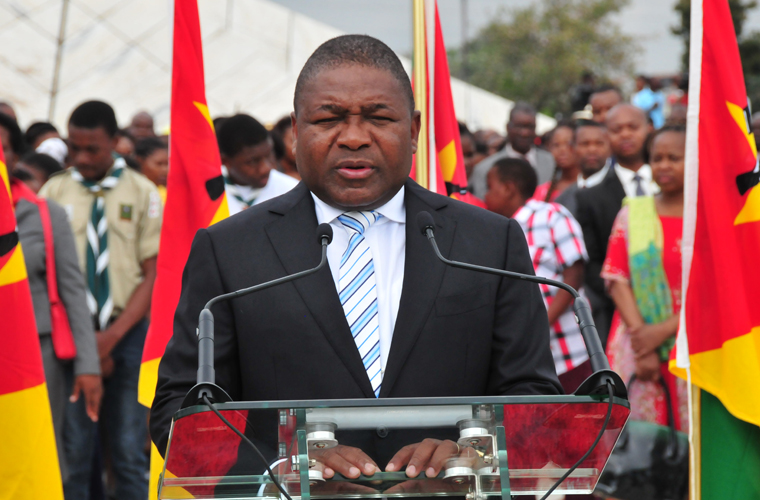Filipe Jacinto Nyusi, born in 1959 in the northern town of Mueda, Cabo Delgado Province, has emerged as a pivotal figure in the political landscape of Mozambique. His early life was shaped by the national liberation movement that sought to free the country from Portuguese colonial rule. As a witness to conflict from a young age, Nyusi’s journey has been marked by resilience, dedication, and a commitment to the development of his country.
Nyusi’s formative years were defined by the struggle for independence. At the onset of the War of Independence in 1964, he was taken across the Ruvuma River to Tanzania, where he received his primary education at a Frelimo school. This period instilled in him a deep sense of purpose and a firsthand understanding of the challenges faced by his nation. After the liberation of Delgado Province, he returned for his secondary education, further solidifying his connection to the evolving narrative of Mozambique.
Joining Frelimo at the age of 14, Nyusi followed in the footsteps of his parents, both veterans of the movement. His commitment to the cause led him to pursue higher education, culminating in a degree in mechanical engineering from the Brno University of Technology in former Czechoslovakia. This was complemented by postgraduate studies in management at the Victoria University of Manchester, UK, reflecting his multifaceted approach to personal and professional growth.
Nyusi’s entry into the professional arena began at Mozambique’s rail and ports company, Caminhos de Ferro de Moçambique, in 1992. This period coincided with the conclusion of the Civil War, marking a pivotal juncture in the nation’s history. His ascent within the company, culminating in his appointment as Executive Director and subsequent inclusion on the Board of Directors, underscored his acumen and strategic vision.
In 2008, Nyusi was entrusted with the role of Minister of Defense, succeeding Tobias Joaquim Dai. His tenure was characterized by a proactive approach to addressing challenges such as piracy, illegal fishing, and pollution. Furthermore, he emphasized the preparedness of the armed forces for humanitarian missions within the framework of regional and international alliances, including the Southern Africa Development Community (SADC), the African Union (AU), and the United Nations (UN).
Nyusi’s trajectory within Frelimo mirrored his steadfast dedication to public service. Elected to the party central committee in 2012, his alignment with the liberation struggle solidified his standing within the political sphere. As a key ally of President Armando Guebuza, Nyusi emerged as Frelimo’s candidate for the presidency, ultimately securing victory in the popular vote in 2014.
Assuming office as President on January 15, 2015, Nyusi inherited a nation grappling with economic challenges stemming from global commodity price fluctuations and currency depreciation. Despite these headwinds, he articulated a vision centered on leveraging Mozambique’s natural resources for sustainable development. A strategic gas master plan developed in collaboration with the World Bank exemplifies his commitment to maximizing the country’s potential beyond traditional export-driven paradigms.
In parallel, Nyusi has prioritized social welfare initiatives encompassing healthcare, education, and social subsidies. These endeavors underscore his holistic approach to governance, acknowledging that economic progress must be complemented by investments in human capital and social well-being. Looking ahead, Nyusi faces the imperative of steering Mozambique towards inclusive growth while addressing political reconciliation between Frelimo and Renamo. The resolution of longstanding tensions and disarmament efforts are pivotal not only for internal stability but also for engendering confidence among potential investors.
As Mozambique charts its trajectory in the 21st century, President Nyusi stands at the helm, steering the nation towards a future defined by sustainable development, social progress, and political stability. His journey from the crucible of conflict to the corridors of power exemplifies a resolute commitment to national advancement and collective prosperity. In navigating the complexities of governance, Nyusi embodies a leadership ethos rooted in resilience, pragmatism, and an unwavering dedication to realizing Mozambique’s potential on the global stage.

